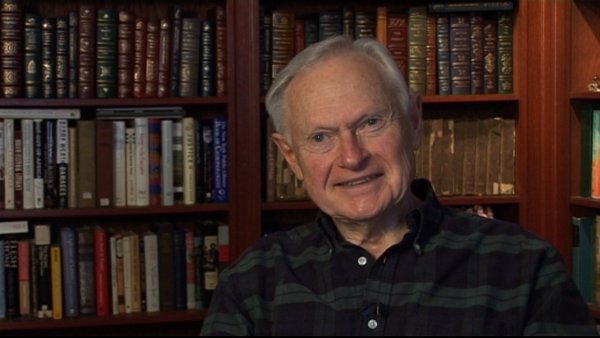NEXT STORY

I become a literary editor
RELATED STORIES

NEXT STORY

I become a literary editor
RELATED STORIES


|
Views | Duration | |
|---|---|---|---|
| 21. An original marriage proposal | 1 | 743 | 03:20 |
| 22. A Jew without belief | 1 | 539 | 02:09 |
| 23. Beneficial spirituality | 1 | 446 | 02:36 |
| 24. Human need for a sense of order | 1 | 460 | 04:14 |
| 25. Why people invented religion | 458 | 03:13 | |
| 26. A sense of wonder | 1 | 307 | 02:06 |
| 27. That narcissistic feeling | 1 | 343 | 00:34 |
| 28. Don't think, just write! | 2 | 412 | 02:34 |
| 29. I become a literary editor | 234 | 03:04 | |
| 30. Ignaz Semmelweis and hand-washing | 418 | 01:58 |


What, of course, I haven't… said much about is how I came to be a writer. How I came to realise that, at a given point in my life, in my late 40s, 50s, that I had absorbed an enormous amount of information, and unconsciously been thinking about it. Not aware that I'd been thinking about it. Maybe thinking is not the right word, because it implies a conscious process, and to me, it's an unconscious process. It's going on all the time, in all of us. You know, I'm convinced that the vast majority of us know a lot more than we realize we know, and the vast majority of us, especially people who are lucky enough to have a good education, have been processing information and have points of view that they don't realize that they have points of view about. Who was the writer who said, 'I write because otherwise I wouldn't know what I'm thinking?'
And that's the way it is for me. You know, this book that I'm known for, How We Die, well, I remember the first time I read that through, after it was published. You know, I'd been reading the manuscripts, obviously, and correcting the galleys and blah, blah, blah. But I sat down and read it like a reader, and I was astounded by that book. I said, Jesus, where did I get that from? How did I know that? Where did this complex mix of thoughts about death and dying come from? This whole philosophy of death which I'd never known I had.
Well, it came because we go around absorbing information, and something in there is working on it, obviously at the cortical level, but maybe some of it's in our brainstem and it's vegetative thinking. It percolates its way, as everything does, up to the cortex. Whatever it is, that brain's going on all the time. And if you sit down and start writing and don't plan what you're going to write, your unconscious just does it for you.
Sherwin Nuland (1930-2014) was an American surgeon and author who taught bioethics, the history of medicine, and medicine at the Yale University School of Medicine. He wrote the book How We Die which made The New York Times bestseller list and won the National Book Award. He also wrote about his own painful coming of age as a son of immigrants in Lost in America: A Journey with My Father. He used to write for The New Yorker, The New York Times, Time, and the New York Review of Books.
Title: Don't think, just write!
Listeners: Christopher Sykes
Christopher Sykes is a London-based television producer and director who has made a number of documentary films for BBC TV, Channel 4 and PBS.
Tags: How We Die
Duration: 2 minutes, 34 seconds
Date story recorded: January 2011
Date story went live: 04 November 2011